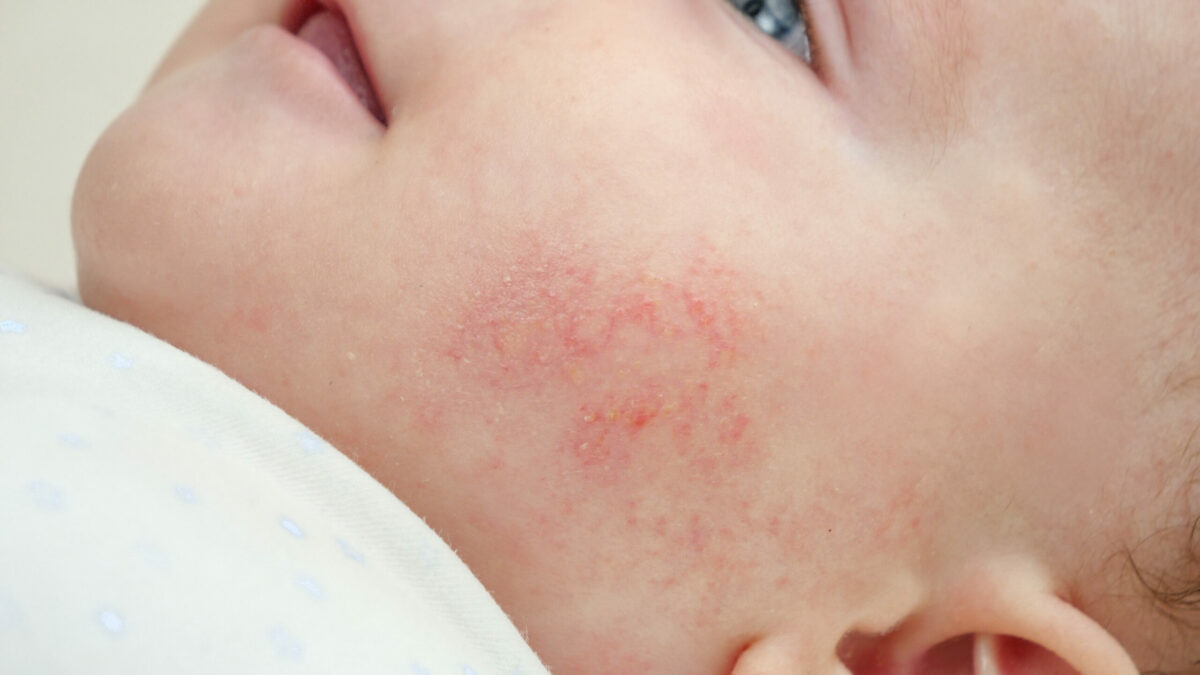A highly contagious infection that usually occurs in childhood and causes a rash on the face is called parvovirus infection or slapped cheek disease. It happens quite commonly and is also known as the fifth disease because it is the fifth disease in the common childhood diseases that cause rash.
This infection is commonly mild and requires little or no treatment. However, in some adults, this infection may cause serious health problems, especially in pregnant women. Parvovirus infection also may be dangerous for people with some anemia types and weakened immune systems.
Symptoms
In most cases, people with this infection do not have any symptoms. Generally, when the symptoms occur they are different among people because it depends on your age, severity of the infection, and other factors. Check below some examples:
Symptoms in Children
These include:
Symptoms in Adults
While adults do not experience slapped cheek rash, they may have soreness that lasts from days to weeks and joint damage that often affects the hands, wrists, knees, and ankles.
Distinctive Facial Rash
In most cases, children with parvovirus infection experience a red rash on the face (often on the cheeks) a few days after the symptoms occur. Thereafter, this rash may spread to the arms, thighs, buttocks, and trunk. This rash causes itchiness on the soles of the feet.
However, this rash often happens when the disease ends and doctors may mistake this symptom for another viral rash or medication-related rash. The rash caused by this infection may come and go and is more visible when your child spends a lot of time in the sun or is exposed to high temperatures.
Usually, people do not need to visit a doctor if the infection occurs. However, if you experience other health problems, you should immediately visit a doctor if you suspect you become infected. These conditions include sickle cell anemia and a weakened immune system. Pregnant women also should consult with their doctor if experience parvovirus infection because it may cause serious problems for an unborn baby.
Causes
The virus (parvovirus B19) that causes infection in humans is different from the virus that causes infection in cats and dogs. Thus, the virus that infects pets cannot spread to humans and vice versa.
Parvovirus infection usually happens among elementary school-age children. Most children experience this infection in the winter and spring months but it may happen in other seasons as well. The human parvovirus can spread among people through breathing, saliva, coughing, or close contact with an infected person. It also may spread through blood. For instance, an infected pregnant woman may pass the virus through the blood to the unborn baby.
This infection is contagious until the rash happens. After that, your child does not need to be isolated.
What Are The Potential Complications of Parvovirus Infection?
Anemia and Parvovirus
This infection may cause serious complications in people with anemia. A health condition in which red blood cells that carry oxygen to all body structures and organs are used faster than the bone marrow replaces them is called anemia. Parvovirus infection may block red blood cell production in people with anemia causing an anemia crisis.
Pregnancy and Parvovirus
Severe anemia may occur in an unborn baby if the mother becomes infected with parvovirus infection. As a result, there is an increased risk of miscarriage or stillbirth. Moreover, the greatest risk of pregnancy complications happens during the first half of the pregnancy.
Weakened Immune System and Parvovirus
Furthermore, a severe anemia form may also occur in people with weakened immune systems often caused by HIV infection, cancer treatments (such as radiation therapy, chemotherapy, and others), medications used to prevent organ transplant rejection, and others.
Prevention
There is no vaccine available to prevent parvovirus infection. However, once you are diagnosed with it, you will get life-long immunity. Regularly wash your hands, do not touch your face, avoid sick people, and do not share your items (such as toothbrushes, food, or drinks).
Diagnosis
Most people are immune to this virus type due to a previous childhood infection. However, doctors may perform some blood tests if you are at increased risk of developing severe parvovirus complications.
Treatment
While people with a mild form of the infection need self-care treatment at home, other people who are at risk of developing severe anemia may need to stay in a hospital for a blood transfusion. Furthermore, doctors may recommend immune globulin injections to treat parvovirus infection if you have a weakened immune system.
Frequently Asked Questions
What are the primary parvovirus infection symptoms?
These include:
- Joint pain
- Rash
- Sore throat
- Cough
- Headaches
- Fever
If you notice that your child experiences any of the previous symptoms, do not hesitate to see a doctor.
How parvovirus can spread among people?
This virus easily passes to other people through coughing, saliva, breathing, and close contact with an infected person (such as hand-to-hand contact).
What are parvovirus infection complications?
Those who have weakened immune systems, chronic health conditions, and are over 60 years old are at increased risk of developing parvovirus infection complications. Check below some examples:
- Pregnancy loss
- Neurological disease (including encephalitis, meningitis, stroke, and others)
- Hydrops fetalis
- Juvenile idiopathic arthritis
- Chronic bone marrow infection that may cause severe anemia
Consult with your doctor about ways on how to prevent parvovirus infection complications. Ask your healthcare provider if you have any other questions.




